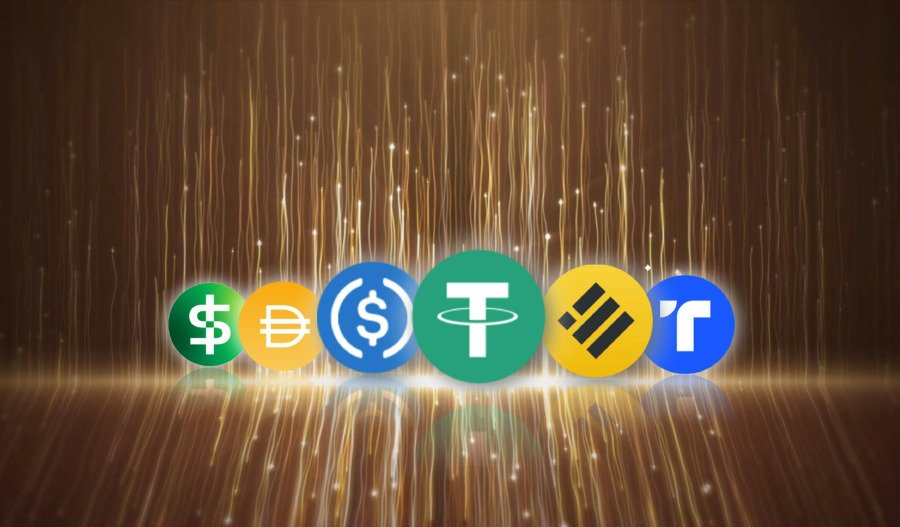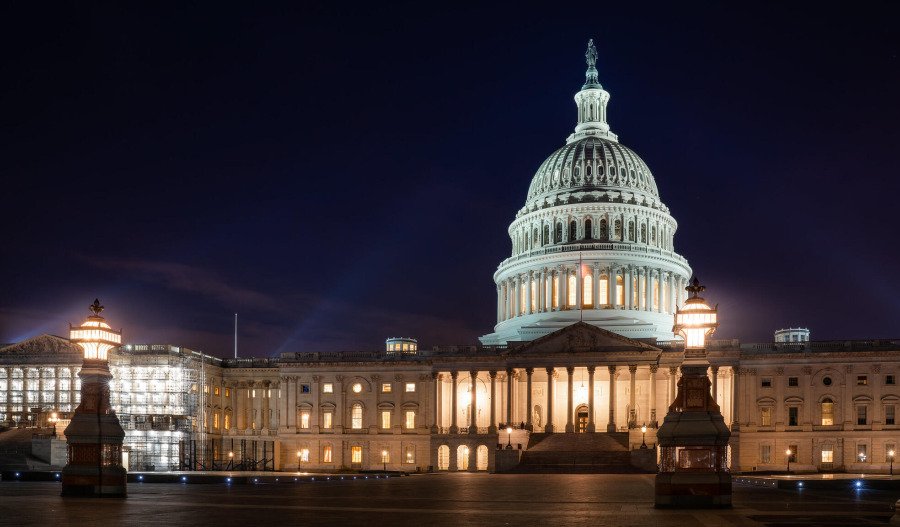Washington last month may have handed Wall Street a loaded gun with the Senate's 68-30 passage of the GENIUS Act on 17 June, weaponising stablecoins rather than simply regulating them.
There's also the related House STABLE Act that passed the committee 32-17 on 2 April that awaits full House consideration.
Stablecoins are digital tokens designed to hold steady value and are used by crypto traders as a tool to hedge against volatility.
And if the sentiment rings true, it represents America's calculated bid to lock down dollar dominance for decades, using blockchain rails to export US debt globally as competitors scramble for strategic positioning.
The real game centres on control rather than compliance, despite official narratives suggesting consumer protection motivations.
"It establishes, for the first time, a regulatory regime for stablecoins, a rapidly developing financial product and industry," Mayer Brown's Andrew Olmem said.
The STABLE and GENIUS Acts don't merely regulate stablecoins - they create a government-sanctioned oligopoly with three privileged issuer classes capturing trillion-dollar payment flows.
- Bank subsidiaries
- OCC-approved entities
- State-chartered operators
…are set to become the sole ‘permitted payment stablecoin issuers’ under the framework.
Translation: Existing entities with the regulatory infrastructure win, as newcomers to the industry face insurmountable barriers to entry.
The US Treasury wants your cash
America desperately needs new Treasury buyers to fund mounting deficits, and JPMorgan's analysis reckons stablecoin issuers could become the third-largest Treasury bill buyers within a matter of years.
Basically, Uncle Sam seems to have effectively found a new dealer for his debt habit - with businesses such as Circle and Tether already holding Treasury positions that rival major money market funds that between them hold ~US$150 billion.
What eventuates out of this is that every Nigerian buying USDC will become an unwitting Treasury investor and Turkish nationals fleeing the lira's volatility will end up funding American government operations.
ARK Investment calls stablecoins "a Trojan horse for US debt," and Treasury Secretary Scott Bessent promises the legislation will generate "a surge in demand for government debt."
This arrangement creates systemic vulnerabilities that dwarf 2008's financial crisis risks, as "if (stablecoin issuers) have to move those Treasuries quickly, or the market demands that, it could create some credit crunches there," warns Mark Hays from Americans for Financial Reform.
Crypto meltdowns could trigger Treasury market dislocations, requiring smart money to position accordingly for potential volatility spikes.
Circle hits the jackpot
Tech entrepreneur and CEO Jeremy Allaire seems to have won the regulatory lottery with surgical precision, as Circle's June IPO priced at $31 and opened at $69 in pure regulatory arbitrage.
Its shares extended rallies as the GENIUS Act advanced through Congress, with investors recognising Circle built compliance infrastructure early as competitors operated recklessly.
"History is being made," Allaire proclaimed as USDC circulation surged 78% year-over-year to $62 billion and Tether maintained $155 billion in circulation from offshore jurisdictions largely untouched by American regulatory frameworks.
The Atlantic Council identifies this as "the biggest weakness in both bills" because they “do not adequately regulate offshore stablecoin issuers”.
Congress effectively handed Circle monopoly power whilst pretending to regulate markets, as the GENIUS Act restricts large tech companies from directly issuing stablecoins unless they partner with regulated financial entities.
Ethereum's revenge
Crypto Twitter mourned Ethereum's supposed death whilst the network quietly dominated stablecoin infrastructure, with CEX.io data showing 4.84 million automated stablecoin transfers processing US$480 billion in May alone.
That represents genuine utility rather than speculation, as the mainnet's stablecoin market cap grew 11% in 2025, clawing back share from Layer 2 networks whilst transaction fees collapsed below 1 gwei.
Stablecoin swaps now represent 37% of Ethereum DEX volume with USDC becoming the network's most-traded asset for institutional flows.
"Speculative tokens come and go, but stablecoins stick because they solve real problems," observes Illia Otychenko from CEX.io, as regulatory frameworks transform Ethereum from casino to settlement layer.
Compliance-hungry institutions need battle-tested infrastructure over experimental chains promising fast transactions, making Ethereum's boring reliability all of a sudden command premium valuations.
Corruption risks
Elizabeth Warren refuses to endorse the legislative hype, declaring "The GENIUS Act will accelerate Trump's corruption by supercharging the size of the stablecoin market" on the Senate floor whilst pointing to presidential crypto holdings that generated $57.35 million in 2024 earnings through World Liberty Financial.
Congress has turbocharged markets where the president maintains financial stakes, creating conflicts that would trigger investigations in traditional industries, whilst consumer protections remain laughably inadequate for retail participants.
No FDIC insurance protects stablecoin holders from issuer failures, and no fraud protections exist when private keys disappear or wallets suffer hacks.
"Treasury bills are normally so short (in maturity) that people don't concern themselves with price movements, but of course in the case of a rapid liquidation the price is going to go down," warns Pete Crane from Crane Data.
The Treasury Borrowing Advisory Committee flags that "growth of the stablecoin market at the expense of bank deposits could reduce banks' demand for U.S. Treasuries," as Congress created systemic risk whilst pretending to manage financial stability.
Reshaping international financial architecture
The first-of-its-kind legislation responds directly to de-dollarisation threats, China's digital yuan ambitions, and European regulatory frameworks, with Chainalysis confirming “the U.S. commands the lion's share of overall stablecoin inflows by country”.
It looks to cement American advantages while at the same time forcing international competitors into binary choices: either adopt U.S. standards or face exclusion from dollar-denominated flows.
Every country building stablecoin frameworks will likely now have to confront this strategic reality - Trump wants congressional approval before August's recess, understanding that speed matters critically in global financial competition.
The GENIUS Act now awaits House consideration.



